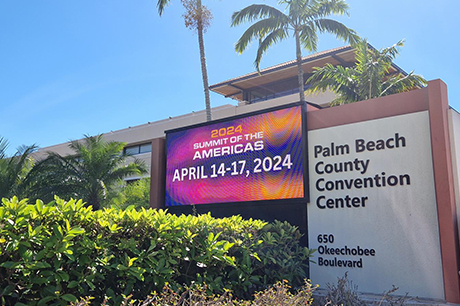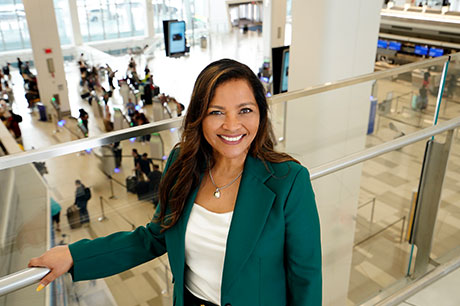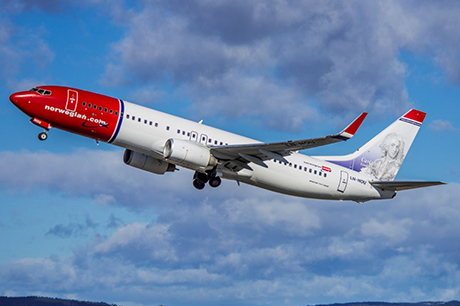Retailers: Minimum annual guarantee ‘rules of engagement’ have changed
By Luke Barras-hill |

An engrossing series of discussions on the passenger experience, the role of digital and the concession model took place on Monday at the virtual Summit of the Americas (5-9 April).
A collective of travel retailers have agreed that operational contracts hinging on minimum annual guarantees (MAGs) are no longer workable in a Covid-ravaged air transport climate and must be reformed.
An engaging panel discussion entitled ‘Road to Recovery: The Retailer Perspective’ took place during yesterday’s virtual Summit of the Americas (5-9 April), with contributions from Motta Internacional, Dufry and 3Sixty Duty Free.
While acknowledging that retailers have availed themselves of MAG relief since the Covid-19 crisis stymied revenues last year, panellists agreed that fixed rents should give way to risk-sharing agreements – a view that have noticeably hardened in the past year.
Aurelio Barria, Senior Vice President at Panama-headquartered Motta Internacional, argued that travel retailers cannot be expected to meet the same rates as in the past.
“We have to change the rules of engagement. We cannot work with the same conditions that we have before. We have airports that have expanded their terminals, because they believe in their growth, but now it will take many years to come back to their projections. We cannot any longer pay MAGs or monthly guarantees.”
MORE CALLS FOR SHARING RISK
Retail continues to provide an important source of income to the airports, Barria maintained.
“All the rules have changed; we have to negotiate new terms and conditions. We are in the process of letting them know that a good partner is important. We have to avoid the ‘landlord’ relationship and have a partnership relationship. That is the only way we can be in the business in the future and give service to the passengers. We have to be creative and we are working on that.”

Clockwise from top left: Aurelio Barria, Senior Vice President, Motta Internacional; Dermot Davitt, President, The Moodie Davitt Report; Enrique Urioste, General Manager Sub-Cluster South America, Dufry; and Alex Anson, Chief Operations Officer, 3Sixty Duty Free.
Enrique Urioste, General Manager Sub-Cluster South America at Dufry said: “I think the new world will go towards risk sharing; if the airport delivers the number of passengers, we commit to extract an amount of money based on pax delivered so we will go into a MAG per-pax basis where we all assume challenges. If the conditions are there, we will have risks but can manage those risks.”
3Sixty Duty Free Chief Operations Officer Alex Anson said closer partnerships should be forged between retailers, airlines and airports while traffic restores.
“If some airports think they can revert back to historical rents before traffic and revenues are in place it could spell a crisis for many travel retail operators,” he suggested.
In Central and Latin America, Barria mentioned that Motta Internacional has suffered since the pandemic hit with the lowest sales return in 20 years.
This is due in part to challenging travel restrictions; Chile’s government recently closed its borders and Argentina’s flights have been significantly reduced [around four international flights per day – Ed].
On the other hand, Panama is showing greater promise and Barria expects the transit passenger business to pick up pace moving forward.
Indeed, Dufry’s Urioste pointed to a ‘hunger’ among travellers to travel and buy.
“People have a desire to travel and buy and vaccines are the tool that will give us the road back to freedom,” he told delegates.
“We know digital is a key tool to bounce back sales but in most of the countries we are faced with a legal challenge: we cannot sell online.”

Aurelio Barria, Senior Vice President, Motta Internacional: “We have airports that have expanded their terminals, because they believe in their growth, but now it will take many years to come back to their projections. We cannot any longer pay MAGs or monthly guarantees.”
NEW PARTNERSHIPS REQUIRED
He went on to stress the importance of reinventing relationships with the aeronautical community and new partnerships fostered with airport partners have been one of positives to emerge from the crisis.
“In Argentina we are working very closely with the airport to reinvent the travel industry and the experience we can provide to the passenger,” said Urioste.
Encouragingly, Barria pointed out that purchase levels per pax at Motta Internacional’s shops are matching the levels seen in 2019, despite the low volumes.
Spending is being driven by core segments such as P&C, which accounts for 65% of sales.
However, he expressed concern around the economic challenges in Latin America and the possible impact that could have on intra-regional travelling at the expense of international travel to destinations such as Europe and Asia.
He said: “It won’t be easy. We have to compete and a face a new reality. Maybe we have to reduce the size of the stores, skus and product lines… before we used to have larger stores but any business that loses 75-80% of clients is hurt.”
Working closely with airlines and suppliers remains crucial, added Barria, to offer added value to customers.
In the case of suppliers, he said the advent of e-commerce particularly in the domestic market is decimating retailers and requires a nimble pricing strategy that reflects differential tax requirements and the pressures faced by travel retailers (space, fees, staff employment).
On the topic of rationalising sku assortments, Alex Anson said 3Sixty Duty Free like others has been working to manage cashflow and inventory.
The type of aggressive promotions seen in the industry have been targeted at reducing inventory, but Anson warned: “12 months on, we are in a position where the customers in our stores still expect bestsellers, good value and innovation and that is the reality. They still want them and therefore if we don’t offer those to these passengers, the little turnover available in airports will be missed but knowing we will still carry an inventory that is not as necessary as in 2019.”
Optimistically, he pointed to the evolution of domestic traffic volumes in the US.
The Center for Disease Control & Prevention (CDC) recently updated it safety guidance to make it easier for fully vaccinated individuals to travel within the US without the need for Covid-19 testing for post-travel self-quarantining.
Anson singled out Dallas as a destination witnessing a positive evolution in traffic and sales. However, returning and leisure traffic hubs such as in Orlando is not witnessing the same pax evolution.
In the case of the airlines, Air Canada – a 3Sixty Duty Free customer – is yet to resume inflight sales.

Panellists agreed that moves towards flexible, revenue per passenger-delivered agreements between travel retailers and airports would represent a more equitable contractual scenario for both parties moving forward.
Anson went on to mention that a big risk in the next three years could mean airport commercial departments view the positive evolution of domestic traffic as an ‘enabler’ for rent hikes among international travel retailers.
He concluded by highlighting areas of concern for the international travel retail business, including multinational brands targeting specific groups such as Chinese customers as part of regional sales networks, and the success of domestic e-commerce platforms.
Challenges around testing in travel retail environments are also being magnified by the likes of domestic retailers, including Sephora in the US, that are now actively using shop floor testing to capture spending.
Anson confirmed that from May, 3Sixty Duty Free will be introducing single tastings for the drinks and confectionery categories.
Speaking directly to the company’s vendor partners, he added: “Leisure travel will resume and travel retail has been amazingly successful for decades and will continue to do so, serving long-haul passengers in an environment they don’t typically have in domestic markets.
“They [vendors] need to continue investing in the region and our channel for the long term. This blip is not forever so we need them to be committed to our region and channel to make sure we’re ready for the resumption of that international – particularly long-haul – traveller, that will come back.”
For more coverage from day one of the virtual Summit of the Americas, click here.
TR Consumer Forum: Agenda & speakers revealed
Influential speakers will unpack the most effective strategies for understanding and engaging...
OUT NOW: March/April Leading Americas Operators
The TRBusiness March/April 2024 edition boasting the inimitable leading Americas Operators...
IAADFS evolves; Americas summit to move to Miami
The International Association of Airport and Duty Free Stores (IAADFS) has adopted a new...
-
 International,
International,TR Consumer Forum: Agenda & speakers revealed
-
 International,
International,OUT NOW: March/April Leading Americas Operators
-
 International,
International,IAADFS evolves; Americas summit to move to Miami

In the Magazine
TRBusiness Magazine is free to access. Read the latest issue now.

 Trbusiness. The travel retail Trbusiness. The magazine for global retail and duty free professionals.
Trbusiness. The travel retail Trbusiness. The magazine for global retail and duty free professionals.





















